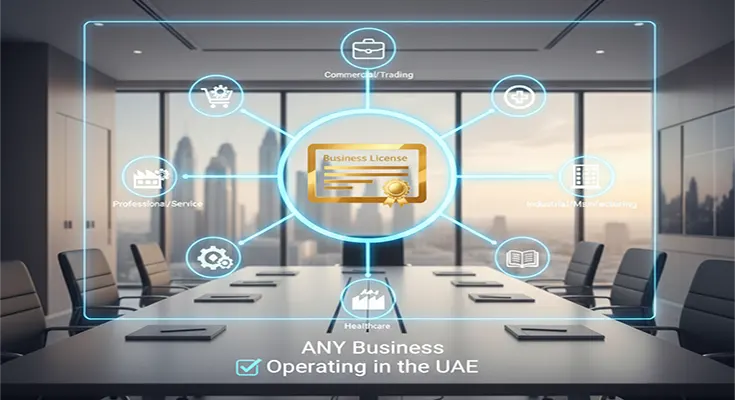The question of who needs a license for business setup in UAE isn’t a simple one. It depends heavily on the nature of your business activity, the location where you plan to operate, and the legal structure you choose. Unlike some countries where a general business license might cover a wide range of activities, the UAE operates under a detailed system of licensing, ensuring regulatory oversight and standardization across various industries. This means that nearly every commercial activity, from trading and manufacturing to providing professional services, requires a specific license issued by the relevant authority.
The need for a license stems from the UAE’s commitment to maintaining a regulated business environment. This regulation protects consumers, ensures fair competition, and safeguards the economic interests of the nation. Licensing helps the government track business activities, collect taxes, and enforce compliance with relevant laws and regulations. Without the appropriate license, a business is operating illegally and faces potential penalties, including fines, business closure, and even legal action. My experience advising entrepreneurs in the UAE has shown me that understanding licensing requirements upfront is critical to a smooth and successful launch.
Different Types of Business Structures and Their Licensing Needs
The UAE offers various business structures, each with its own set of licensing requirements. A mainland company, operating within the UAE’s geographical boundaries outside of free zones, typically requires a license from the Department of Economic Development (DED) of the relevant emirate. The DED issues licenses based on the specific activity the company intends to undertake, and the process involves several approvals from different government departments, depending on the nature of the business. For instance, a restaurant needs approvals from the food safety department, while a construction company needs approvals from the municipality.
Free zone companies, on the other hand, are licensed by the respective free zone authority. Each free zone specializes in certain industries, such as media, technology, or healthcare, and offers tailored licenses for businesses operating within those sectors. Meydan Free Zone, for example, provides a business-friendly environment with simplified licensing procedures, particularly attractive to startups and SMEs. These free zone licenses generally allow for 100% foreign ownership and offer tax advantages, making them a popular choice for international investors. However, free zone companies are usually restricted to operating within the free zone and engaging in business outside the free zone through distributors or agents. The type of license you need depends on the legal form you choose, whether it’s a sole proprietorship, a limited liability company (LLC), or a branch of a foreign company.
How Business Activity Influences Licensing Requirements
The specific activity your business plans to undertake is the most crucial factor determining the type of license you need. The UAE has a comprehensive list of business activities, each categorized under a specific code and requiring a corresponding license. For example, if you plan to open a retail store, you will need a commercial license specifying retail activity. If you are offering consultancy services, you will need a professional license. It’s vital to accurately identify your business activity to obtain the correct license. Applying for the wrong license can lead to delays, rejections, and even fines.
Furthermore, some business activities require approvals from specific government agencies in addition to the DED or free zone authority. For instance, businesses dealing with food products need approval from the food control department, while those involved in healthcare require approval from the Ministry of Health. Certain activities, such as banking and insurance, are heavily regulated and require specialized licenses and approvals from the Central Bank of the UAE. In my years of consulting, I’ve seen many entrepreneurs underestimate the complexity of this step, leading to significant delays in their launch.
The Difference in Licensing Between Mainland and Free Zone Locations
The location of your business plays a significant role in determining the licensing process and requirements. Mainland companies, operating within the UAE’s geographic territory, are governed by the DED of the specific emirate in which they are located. This means that a company in Dubai will need to obtain its license from the Dubai DED, while a company in Abu Dhabi will need to obtain its license from the Abu Dhabi DED. Mainland licenses typically allow businesses to operate throughout the UAE without restrictions, but they often require a local sponsor or partner who holds a minimum of 51% ownership of the company.
Free zone companies, on the other hand, are licensed by the respective free zone authority. Each free zone has its own set of regulations and procedures, which are generally more streamlined and business-friendly than those in the mainland. Free zones offer 100% foreign ownership, tax exemptions, and simplified import/export procedures. However, free zone companies are typically restricted to operating within the free zone and engaging in business outside the free zone through distributors or agents. Choosing between a mainland and a free zone location depends on your business needs and objectives. For businesses that need to directly serve the UAE market, a mainland license may be more suitable, while for businesses focused on export or regional operations, a free zone license may be a better option.
Penalties for Operating Without a Valid Business License
Operating a business without a valid license in the UAE is illegal and can result in severe penalties. The penalties can include hefty fines, business closure, and even legal action against the business owner. The exact amount of the fine depends on the nature of the violation and the emirate in which the business is operating. In addition to financial penalties, operating without a license can damage your business reputation and make it difficult to obtain future licenses or permits.
Furthermore, operating without a license can invalidate your contracts and insurance policies, leaving your business vulnerable to legal and financial risks. The UAE authorities take unlicensed business activity very seriously and actively monitor businesses to ensure compliance. My experience has shown that even seemingly minor violations can result in significant penalties, so it’s crucial to ensure that your business is fully licensed and compliant with all relevant regulations.
Specific Industries with Unique Licensing Requirements
Certain industries in the UAE have unique licensing requirements due to their nature and potential impact on public health, safety, and security. For example, businesses involved in healthcare, such as hospitals and clinics, require specialized licenses from the Ministry of Health and must comply with strict regulations regarding patient care, hygiene, and safety. Similarly, businesses involved in food production, processing, and distribution require licenses from the food control department and must adhere to stringent food safety standards.
The financial sector, including banks, insurance companies, and investment firms, is heavily regulated and requires specialized licenses from the Central Bank of the UAE. These licenses are subject to strict capital requirements, regulatory oversight, and compliance with anti-money laundering regulations. Other industries with unique licensing requirements include education, real estate, and tourism. Understanding the specific licensing requirements for your industry is essential for ensuring compliance and avoiding penalties.To make the business setup in UAE seamless, Meydan Free Zone provides support in navigating licensing process.





